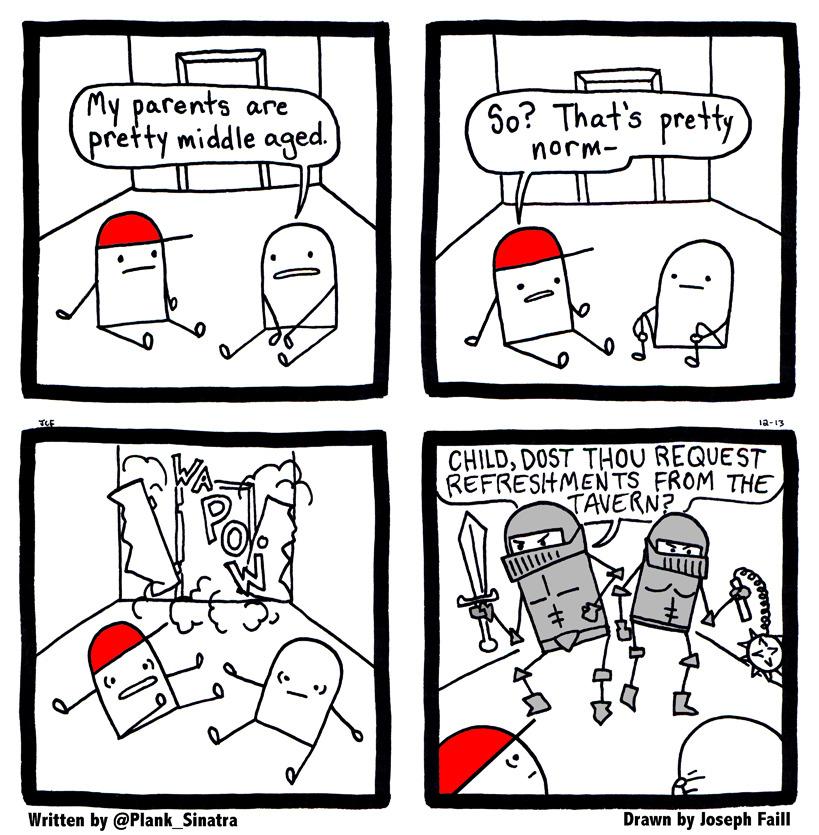 |
| The cartoon in question, by Joseph Faill on A Pleasant Waste of Time. Image used for commentary. |
That noted, it is important to look at such things. Jokes only work when their audiences understand the references being made, so what jokes play upon can be taken as a reflection of the knowledge-base from which the expected primary audience operates. Given the comic's original situation on a widely-accessible blog, it can be presumed that the expected audience of the piece is a broad one, rather than a targeted one; that is, the comic will play to popular conceptions of things, which are muddled through the oft-discussed-in-this-webspace (examples here, here, here, here, here, and here, among others) tendency of people to learn about the medieval through products of popular culture, which are concerned with marketable entertainment value rather than historical accuracy.
The comic seems very much to play into the popular conception of the pre- and early-modern past, which is typically compressed into a few "similar" ideas that elide much of the difference, nuance, detail, and glory of each. The wording in the final panel, making use of a now-obsolete -st ending and the "medieval" thou, as well as referencing a tavern, speaks to an idea of difficult-to-understand speech (though it seems to present no trouble in the event) and a fixation on common life centered on alcohol (which is hardly uniquely medieval; there are still quite a few taverns that advertise themselves as such). Similarly, the array of the parents in armor--without surcoat--that shows gendered characters--codpiece and boob-plate--and has the seeming mother wielding a flail (about which, see Sturtevant here and here) speaks to the same set of misconceptions. It indicates that those misconceptions are the prevailing ideas of the medieval, and that is a problem for reasons that have been amply attested in this webspace and many, many other places.
Again, though, I do not find fault with Faill for engaging those (wrong) ideas. The point is to get a laugh, and getting a laugh means making sure the presumed audience has access to the references being made. I'm not sure that getting more things "right" would have helped with that; putting the parents' words into even Chaucerian Middle English--let alone that of the Gawain-poet or the West Saxon of Beowulf--would have produced more confusion than amusement. Other clothes than plate armor would not have said "middle ages" as clearly, particularly given the art style. They would not have carried the joke, which would have defeated the purpose.
Even so, that the joke needs to be the way it is to land is unfortunate. It serves as a reminder that we, as scholars of the medieval and its appropriations, need to do more to teach people how things were and how they can be than we have yet done, particularly given all the misuses to which the medieval is being put.

No comments:
Post a Comment